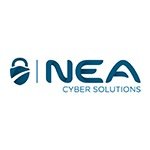Online Computer and Cyber Forensics Summer Internship in Delhi
Cyber Forensics and Investigation Summer Internship Certification focuses on the in-depth skills required for computer forensics experts, ethical hackers, cyber security analysts, penetration testers, and various information security experts to deeply analyze and extract the data from various operating systems in the forensic phase. This course can be done by both working professionals and college students who want to make a career in the fields of computer hacking and cybercrime investigations.
We provide Cyber Security Summer Internship Training to our students, corporate clients, and partners because we believe that high standards bring excellent output. We teach our students for how to be secure on our end from malware and viruses. Our clients learn Ethical Hacking, Cyber Forensics, Networking, and some security courses in bytecode cybersecurity for becoming Security Analysts.
Eligibility Criteria
Any graduate, undergraduate, or post-graduate student with a passion for information security can undergo our Cyber Security course in Delhi and become a certified ethical hacker. If you are willing to know more about the course or admission eligibility, just give us a call, and we will suggest the best batch option for you.
Students can attend classes from their homes. It takes less time to attend an online class. At the same time, various groups can attend online classes with bytecode Cyber Security From home.
DOWNLOAD COMPUTER CYBER FORENSICS PDF – Click Here to Download
Computer Cyber Forensics Summer Internship Curriculum
Module 02: Methods by which Computers Get Hacked
Module 03: Computer Forensics Investigation Process
Module 04: Digital Evidence Gathering
Module 05: Computer Forensics Lab
Module 06: Setting Up Forensics Lab
Module 07: Understanding Hard Disks
Module 08: File Systems Analysis: Linux/Windows/Mac
Module 09: Windows Filesystem Forensics
Module 10: Data Acquisition Tools and Techniques
Module 11: Data Imaging Techniques and Tools
Module 12: Recovering Deleted Files and Folders
Module 13: Deleted Partitions Recovery Technique
Module 14: Forensics Investigations Using Forensics Tool Kit (FTK)
Module 15: Forensics Investigations Using Forensics Tool Kit (Oxygen)
Module 16: Forensics Investigations Using Encase Tool
Module 17: Stenography and Image File Forensics
Module 18: Application Password Crackers
Module 19: Log Capturing and Event Correlation
Module 20: Network Forensics Tools and Techniques
Module 21: Mobile Forensics Tools: Cellebrite Tool Introduction
Module 22: Investigating Logs
Module 23: Investigating Network Traffic: Wireshark
Module 24: Investigating Wireless Attacks
Module 25: Investigating Web Application Attacks via Logs
Module 26: Tracking and Investigating Various Email Crimes
Module 27: Detailed Investigative Reporting
Our Students are Placed in Companies




Our Google Reviews
Our Related Course
Frequently Asked Questions
About The Cyber Forensics Training and Certification Course Program
How does cyber forensics work?
The term “cyber forensics” refers to a variety of techniques investigators use to collect and examine possible evidence from digital or physical assets. When malevolent actors use data obfuscation techniques, these assets could be the target of manipulation, hiding, encryption, or tampering.
Data acquisition in the discipline of cyber forensics is done to maintain the confidentiality of the authentic source of the data. The process of making exact copies of the data resource accomplishes this.
How many types of forensics are there?
As listed below, there are twelve different types of forensic science that are now offered in the market:
- Computational Forensics
- Forensic Astronomy
- Forensic Geology
- Forensic Seismology
- Digital Forensics
- Forensic Art
- Forensic Entomology
- Bloodstain Pattern Analysis
- Forensic Chemistry
- Election Forensics
- Forensic Engineering
- Forensic DNA Analysis
How long does a forensic investigation take?
A typical digital forensics test takes anything from 15 to 35 hours to complete. It is noteworthy that more than one million electronic pages might be found in a thorough examination of 100 GB of data kept on a hard drive. It usually takes a long time — between 15 and 35 hours—to compute the results and extract the pertinent information that would be considered admissible in a court of law. It can take more than 35 hours to review potential evidence, depending on the size and format of the media that is being examined.
How do I get a job in forensics?
After completing a focused and genuine Cyber Forensics Investigation Course at Bytecode Cyber Security Institution's locations in Saket and Laxmi Nagar, one can obtain a potential job chance in the field of digital forensics investigation. These branches have forensics instructors who are extremely skilled and experienced, making them well-known around the nation.
What is the scope of cyber forensics?
The vital role that cyber forensics plays in extracting acceptable facts from digital assets taken from crime scenes is driving the field's rapid expansion. Criminals are increasingly using a variety of digital tools to commit various types of cybercrime as worldwide crime rates continue to climb.
Why is cyber forensics important?
Computer forensics is also important because it can save your organization money.From a technical standpoint, the main goal of computer forensics is to identify, collect, preserve, and analyze data in a way that preserves the integrity of the evidence collected so it can be used effectively in a legal case.
What is cyber forensic course?
It enables the students to gain in-depth knowledge in the field of Computer forensics & Cyber Crime. Learning Outcomes: After completion of the course the students will be able to learn investigation tools and techniques, analysis of data to identify evidence, Technical Aspects & Legal Aspects related to cyber crime.
What is cyber forensic investigation?
Cyber Forensics investigations include breaking down complex cases and locating digital evidence pieces that are hidden or stored in different formats across several digital assets. This subject is related to an official academic discipline called Cyber Forensic Investigation.
Bytecode Security is the Best Cyber Forensics Investigation Training Institute in India. If you're interested in learning the various principles of cyber forensics under the close supervision of a highly skilled mentor with years of excellent experience, you can accomplish the same. Give +91-9513805401 a ring to speak with one of our knowledgeable educational experts for more information.
What does a cyber crime investigator do?
A cybercrime investigator investigates a number of crimes that range from recovering file systems on computers that have been hacked or damaged to investigating crimes against children. In addition, cybercrime investigators also recover data from computers that can be used in prosecuting crimes.
What is forensic investigation in cyber security?
Computer forensics is the application of investigation and analysis techniques to gather and preserve evidence from a particular computing device in a way that is suitable for presentation in a court of law. All investigation is done on the digital copy.
What are cyber forensics tools?
The specialist tools used by cyber forensics experts to successfully handle intricate cybercrime investigations are listed below:
- Network Forensic tools.
- Database analysis tools.
- File analysis tools.
- Registry analysis tools.
- Email analysis tools.
- OS analysis tools.
- Disk and data capture.
What is digital forensics course?
A course on digital forensics includes a wide range of instruments, procedures, and ideas that help people gather and extract data as concrete evidence that can be accepted as proof in court to bring charges against online criminals.
From the same vantage point, Bytecode Security offers a cutting-edge Cyber Forensics Investigation Course taught by highly skilled forensics instructors with nearly eight years of expertise in the field.
Which software can make a forensic copy of RAM?
A broad range of software programs are presently on the market that can precisely duplicate Random Access Memories (RAM) by employing various techniques. For this particular set of tasks, the Digital Evidence Investigator® (DEI) software is the best choice.
Which is better cybersecurity or digital forensics?
The response depends on the choice the user makes. Certification in a Cyber Forensics Training Course is a mutually beneficial option for anyone interested in national service or solving criminal cases. However, those who have a high aptitude for finding vulnerabilities in an IT system can find that working in cyber security is a good fit for their interests.



































